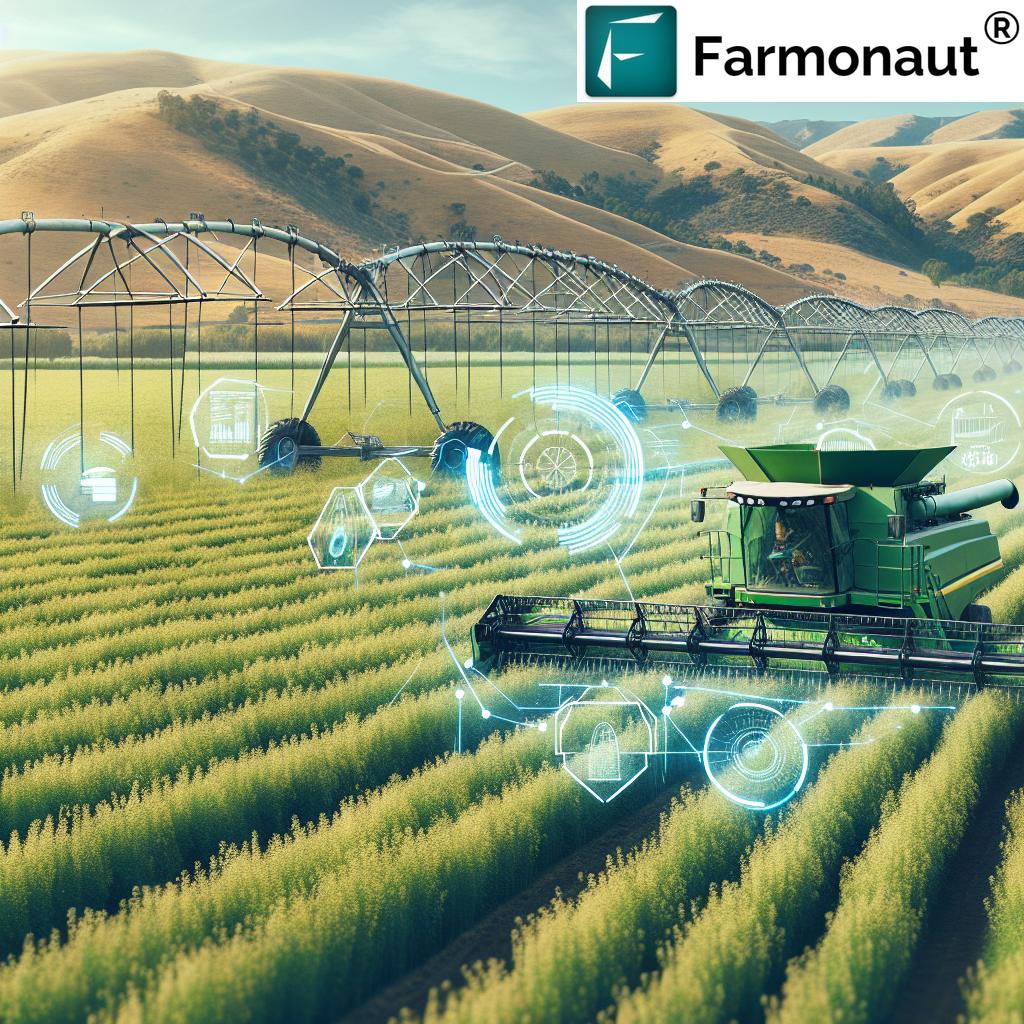Agricultural Land Management Branchburg, North Bergen, Bergen County NJ: 2025’s Comprehensive Guide to Sustainable Farmland Stewardship
Meta Description: Discover effective agricultural land management strategies for Branchburg, North Bergen, and Bergen County NJ in 2025. Explore sustainable practices, soil health, and future challenges for regional farmland stewardship and productivity.
“Over 75% of Bergen County’s farmland uses crop rotation techniques to enhance soil health and sustainability.”
Agricultural Land Management Branchburg, North Bergen, Bergen County NJ: The Cornerstone of Sustainable Agriculture in 2025
In the heart of New Jersey—across Bergen County, North Bergen, and Branchburg—the agricultural landscape is being reshaped for 2025 and beyond. These regions serve as living examples of why agricultural land management is a vital pillar in ensuring food security, rural livelihoods, and environmental stewardship. Yet as suburbia sprawls, climate patterns shift, and economic expectations rise, the ability of farmers, policymakers, and communities to maintain productive, resilient, and sustainable farmland is being tested as never before.
This comprehensive overview explores the evolving best practices, trends, strategies, and future directions for agricultural land management branchburg nj, agricultural land management north bergen nj, and agricultural land management bergen county nj—uncovering what it takes to balance production, sustainability, and future challenges in New Jersey’s key agricultural regions.
Importance of Agricultural Land Management in New Jersey
Despite boasting only a limited area compared to other states, New Jersey’s working landscapes—particularly within Bergen County, North Bergen, and Branchburg—play a vital role in our local food systems, rural economies, and essential ecosystem services.
- Food Production: From dairy to organic vegetables and nursery products, these counties ensure fresh, locally-grown produce amid an urbanized environment.
- Ecosystem Services: Farmlands provide soil erosion control, groundwater recharge, biodiversity corridors, and habitats for pollinators.
- Rural Economies: Farming remains a key employer and economic pillar in communities that increasingly face competing land development pressures.
Balancing these roles—amidst evolving challenges like urban encroachment, climate change, and rapidly rising land costs—demands effective, sustainable land management supported by innovative technology and well-coordinated conservation programs.
Agricultural Land Management Bergen County NJ: Navigating Preservation, Productivity & Progress
As one of the most densely populated counties in New Jersey, Bergen County stands at the crossroads of agricultural heritage and modern urban sprawl. The agricultural landscape here mostly comprises small- to medium-sized family farms, which either produce fresh vegetables, nursery crops, or dairy products for local markets.
The urgency to preserve farmland while supporting sustainable production systems has led to a pioneering blend of tradition and innovation in agricultural land management across the county.
Key Pressures & Challenges Facing Bergen County Farmland
- Urban Encroachment: Bergen County faces intense development pressures—with forests and arable land often lost to housing, shopping centers, and infrastructure projects.
- Limited Land Area: Compared to more rural New Jersey counties, available agricultural land remains small, fragmented, and vulnerable to conversion.
- Economic Pressures: With sharply rising land values and operational costs in 2025, farms must be productive and financially viable to survive.
- Soil & Water Health: Soil erosion and water management are critical as climate variability increases and storms grow in frequency and severity.
Best Practices, Conservation Programs & Policies in Bergen County
- Soil Conservation:
- Adoption of contour plowing and cover cropping to reduce soil erosion and runoff.
- Rotational cropping systems that help rebuild soil organic matter and fertility.
- Low-impact tillage practices integrated with organic amendments.
- Land Use Zoning & Preservation:
- Mature zoning laws restrict residential sprawl, protect active farmland, and buffer critical soils against conversion.
- The Bergen County Agriculture Development Board actively promotes farmland preservation through conservation easements and direct support for eligible farmers.
- Land preservation programs offer purchase of development rights and property tax relief for participating landowners, helping maintain agricultural viability in the face of development pressures.
- Community-Based Stewardship:
- Education and community-supported agriculture further engage local residents in the value of maintaining productive, sustainable farmland across Bergen County.
Access the Farmonaut app to monitor farmland health, optimize agricultural operations, and inform conservation decisions with real-time satellite & AI insights!
Agricultural Land Management North Bergen NJ: Urban Agriculture & Environmental Innovation
North Bergen, strategically situated closer to the urban core in Hudson County, differs from other parts of New Jersey by presenting new opportunities in urban and peri-urban agriculture. While North Bergen’s agricultural land use is less traditional—given its urban footprint—it now serves as a regional pioneer for community-based food systems and innovative farming approaches.
Urban & Peri-Urban Opportunities in North Bergen
- Limited Arable Land: Most available spaces in North Bergen are compact, but creative land management maximizes productivity using small-scale and vertical farming systems.
- City-Scale Food Security: With a growing urban population and rising consumer interest in local food, repurposed lots, vacant rooftops, and community plots are providing an essential supplement to regional food needs.
- Environmental Sustainability: North Bergen’s push for green spaces, biodiversity, and climate resilience hinges on integrating agriculture into city planning, green roofs, and water-smart design.
Innovative Practices in Agricultural Land Management North Bergen NJ
- Rooftop Farming & Hydroponics:
- Utilizing limited vertical space for soil or soilless agriculture—enabling year-round production with minimal land use.
- Sustainable water recycling systems and controlled environments reduce waste and inputs.
- Community Gardens:
- Active local initiatives empower community members to co-manage plots, cultivate diverse crops, improve food access, and foster resilience.
- Integrated Pest & Soil Management:
- Urban farms and gardens are increasingly featuring organic soil amendments, non-chemical pest controls, and biodiversity-friendly habitat design.
- Focus on pollinator corridors, companion planting, and composting techniques.
- Policy Support and Public Engagement:
- Municipal incentives and partnerships with local businesses, kitchens, and schools foster a culture of sustainable land stewardship even within dense urban environments.
Urban agricultural land management north bergen nj remains at the forefront of integrating food production directly into the built environment, supporting healthy diets, strong communities, and urban ecosystem services for the future.
“Branchburg reports a 30% increase in sustainable land practices since 2015, focusing on long-term agricultural resilience.”
Agricultural Land Management Branchburg NJ: Innovation, Resilience, and Large-Scale Stewardship
Offering a more rural character—and featuring some of the largest and most diverse farms in Somerset County—Branchburg is distinguished by robust crop production, livestock, grains, and the rapid integration of modern farm management for 2025 and beyond.
Vast acreage, a relatively low population density, and ongoing investment in agricultural research and extension have helped Branchburg emerge as a leader in future-oriented, climate-smart farming.
Advanced Technologies & Sustainable Agricultural Practices in Branchburg
- Precision Agriculture Integration:
- Adoption of soil testing, GPS-guided planting, and drone monitoring enables site-specific management, reduced input costs, and improved yields.
- Deployment of advanced soil moisture sensors and state-of-the-art irrigation systems supports effective water use and drought resilience.
- Conservation & Stewardship Programs:
- Many Branchburg farmers participate in state and federal conservation initiatives designed to protect wetlands, buffer waterways, and reduce nutrient runoff.
- Agroforestry, cover cropping, and carbon farming techniques are increasingly deployed for long-term soil health and climate mitigation.
- Resource Management Tools:
- Emerging platforms, like our Farmonaut monitoring suite, empower farmers to track NDVI, plan logistics, and manage fields with satellite data.
- Blockchain-based traceability, as enabled by modern platforms (see Farmonaut Traceability), builds transparency and trust throughout local supply chains by tracking origin, practices, and compliance.
Explore Farmonaut Product Traceability: Track farm produce from field to table, increase supply chain transparency, and build consumer trust in agricultural products grown in Branchburg, North Bergen, and Bergen County.
Resilient Soil Health, Watershed Protection, and Farmer Empowerment
- Soil Health:
- Rigorous soil health monitoring is performed using real-time satellite and AI technologies, complemented by traditional agronomy.
- Cover cropping, reduced tillage, and organic amendments are mainstays for enhancing carbon sequestration and long-term fertility.
- Water Management:
- Adoption of precision irrigation and watershed stewardship is key for efficient agricultural land management Branchburg NJ faces in a changing climate.
- Community & Agency Support:
- Close collaboration between land managers, Rutgers Cooperative Extension, and the local government ensures shared resources, ongoing training, and adaptation to new threats or regulatory requirements.
Fleet & Resource Management by Farmonaut helps agricultural businesses in North Bergen, Bergen County, and Branchburg reduce costs and improve logistics. Optimize your equipment, monitor usage, and collect actionable, satellite-based intelligence for effective farm management.
Comparative Overview Table: Agricultural Land Management Across Bergen County, North Bergen, and Branchburg NJ
| Location | Current Land Use Practices (Sustainable vs. Conventional, % est.) |
Key Sustainability Initiatives | Estimated Soil Health Score (1–10) | Major Environmental Challenges | Future Priorities |
|---|---|---|---|---|---|
| Branchburg, NJ | Sustainable: 58% Conventional: 42% |
Cover cropping, reduced tillage, precision irrigation, crop rotation, conservation programs, carbon farming, agroforestry | 8.3 | Climate variability, nutrient runoff, drought, labor shortages | Precision ag tech, real-time monitoring, watershed restoration, sustainable intensification, technology training |
| North Bergen, NJ | Sustainable: 86% Conventional: 14% |
Rooftop farming, hydroponics, community gardens, composting, water recycling, pollinator planting | 7.1 | Limited arable area, soil contamination (urban), water access, heat island effect | Green infrastructure, education, community integration, food access, resilience to urban climate extremes |
| Bergen County, NJ | Sustainable: 63% Conventional: 37% |
Cover cropping, contour plowing, rotational cropping, organic amendments, preservation easements, zoning | 7.6 | Urban encroachment, soil erosion, high land costs, water management | Policy refinement, farmland access, soil carbon tracking, smart zoning, community engagement |
Farmonaut: Advanced Satellite Technology for Modern Agricultural Land Management
The promise of sustainable, effective agricultural land management across Branchburg, North Bergen, and Bergen County NJ is increasingly realized thanks to the power of real-time satellite data, AI-driven monitoring, and digital resource management—capabilities at the heart of Farmonaut’s platform.
- Satellite-Based Monitoring: We provide high-frequency multispectral imagery that enables farmers, land managers, and governments to track vegetation health (NDVI), soil moisture, and management zones across thousands of acres. This is crucial for detecting crop stress, predicting yields, and assessing the impact of ongoing conservation efforts.
- AI and Advisory Services: Our JEEVN AI advisory system automates field analysis, delivers weather forecasts, and suggests data-driven strategies to improve productivity, reduce risks, and make better farming decisions in regions facing uncertainty.
- Blockchain-Based Traceability: Through traceability solutions, we ensure agricultural produce in Branchburg, North Bergen, and Bergen County is fully accountable, safe, and trusted by consumers and supply chains.
- Carbon Footprinting: Our carbon footprint monitoring and reporting tools help farmers adopt climate-smart systems while complying with regulatory expectations—critical for future government programs and eco-labels.
- Fleet & Resource Management: We equip farm businesses with easy-to-use fleet telematics and resource tools, optimizing logistics and reducing unnecessary fuel costs.
- Large Scale Farm Management: For advanced operations, our large-scale management solutions offer complete enterprise visibility, from remote field mapping to multi-site monitoring.
Developers & Integrators: Use the Farmonaut API and developer docs to seamlessly connect satellite-powered farmland insights with your digital tools or decision support systems.
Video Resources: Smart Farming & Land Management in North Bergen, Bergen County, and Branchburg NJ
-
Farmonaut Web System Tutorial: Monitor Crops via Satellite & AI – Learn to monitor NDVI, soil moisture, and field health in real time.
Watch on YouTube -
JEEVN AI: Smart Farming with Satellite & AI Insights – Discover how AI-powered advisory transforms on-farm decision making.
View Video -
Regenerative Agriculture 2025: Carbon Farming, Soil Health & Climate-Smart Solutions | Farmonaut – Explore future-proof agricultural solutions for New Jersey soils.
Learn More -
FREE Mulch & Compost NJ 2025 | Top Pickup Spots – Get tips for eco-friendly farming and gardening in North Bergen and Bergen County.
See Video -
How AI Drones Are Saving Farms in 2025 – Uncover the advantages of AI-powered scouting and field diagnostics for big farms.
Check It Out -
Satellite Soil Moisture Monitoring 2025 – AI Remote‑Sensing for Precision Agriculture
Watch the Demo -
Farmonaut – Revolutionizing Farming with Satellite-Based Crop Health Monitoring
View Now -
How Farmonaut’s Satellite Technology is Revolutionizing Land Use in Agriculture
See Real-World Impact
Farmonaut Subscription Options for Bergen County, North Bergen, and Branchburg Land Managers
Our platform is available via flexible, subscription-based packages for individual farmers, agribusinesses, and public agencies—ensuring affordable access to advanced monitoring, advisory, and resource management features.
- Modular Plans: Start with satellite crop health monitoring and scale up to enterprise solutions with traceability, carbon accounting, and API integrations for seamless farm-to-fork visibility.
- Easy Access: Manage fields, monitor crop risks, and generate compliance reports—directly from our web or mobile app.
- Affordable Insights: Unlike legacy monitoring systems, satellite technology democratizes advanced insights for all farm sizes in NJ.
See price breakdown and current offers below:
Future Directions & Challenges for Agricultural Land Management Branchburg, North Bergen, Bergen County NJ
Looking ahead to 2025 and beyond, agricultural land management across Branchburg, North Bergen, and Bergen County must adapt dynamically to a host of evolving pressures:
Emerging Pressures & Environmental Challenges
- Climate Change: Droughts, more frequent intense storms, and shifting growing seasons threaten crop reliability and require climate-smart adaptation strategies.
- Real Estate Competition: High land values and pressure for urban expansion, especially in Bergen and North Bergen, make preservation strategies and innovative legal mechanisms more important than ever.
- Changing Consumer Expectations: Trends toward organic, local, traceable food production are reshaping operating models and investment priorities.
- Rising Operational Costs: The cost of labor, fuel, fertilizers, and compliance continues to mount, adding incentive for the adoption of advanced monitoring and precision technology.
- Biodiversity & Water Scarcity: Maintaining habitat corridors, pollinator resources, and effective watershed management is now non-negotiable for long-term productivity.
Key Solutions for the Future
- Technology-Driven Resilience: AI-ready, real-time monitoring platforms—such as Farmonaut—enable precision management, early threat detection, and smart resource allocation.
- Climate-Smart Cropping Systems: Diversification, drought-tolerant varieties, and flexible planting schedules enhance resilience to volatility.
- Conservation + Community Engagement: Enhanced extension, shared education resources, and local leadership drive adoption of best practices and policy refinement.
- Soil & Carbon Monitoring: Tracking soil health and carbon sequestration supports participation in offset/eco-credit programs and future government funding.
- Modular Policy Support: Multi-scale, blended regulatory frameworks—combining zoning, financial incentives, and ecosystem service payments—enable adaptation to local contexts and maintain working landscapes.
By embracing both innovation and tradition, agricultural land management branchburg nj, agricultural land management north bergen nj, and agricultural land management bergen county nj will ensure NJ’s farmland remains productive, sustainable, and economically vital through every challenge and future opportunity.
FAQ: Agricultural Land Management Branchburg, North Bergen, and Bergen County NJ
What are the main agricultural land management challenges in Bergen County NJ for 2025?
Bergen County faces urban encroachment, soil erosion, high land values, and balancing land use for food production versus development. Programs promoting zoning, soil health tracking, and farmland preservation are essential.
How is agricultural land management different in North Bergen NJ compared to rural NJ counties?
North Bergen focuses heavily on urban and peri-urban agricultural practices such as rooftop farming, community gardens, and hydroponics—integrating food production into city environments and maximizing limited green space.
What technologies are most important for agricultural land management in Branchburg NJ?
Branchburg leverages precision agriculture, real-time satellite monitoring, drone scouting, and advanced soil testing to build resilience, optimize resources, and ensure sustainability at scale.
What state and federal programs support sustainable agricultural land management in New Jersey?
Key programs include: Farmland Preservation programs, USDA Conservation Compliance, EQIP, NRCS Wetland Buffer incentives, as well as municipal and county-led stewardship initiatives supporting land conservation and ag viability.
How does Farmonaut help farmers and land managers in Bergen County, North Bergen, and Branchburg, NJ?
We provide easy access to real-time satellite imagery, AI-driven advisories, and traceability tools that help monitor crop health, improve yields, optimize inputs, and support compliance with environmental and food safety standards.
Conclusion: Balancing Sustainability, Productivity, and Resilience for New Jersey Farmland
Working landscapes in Branchburg, North Bergen, and Bergen County NJ stand at the interface of tradition and transformation. Agricultural land management in 2025 must not only combat soil erosion, urban encroachment, and climate uncertainty, but champion innovation, transparency, and community-centric approaches that secure the future of local agriculture.
By blending field-tested conservation with advanced analytics provided through technologies like satellite monitoring and AI-driven advisory—available through the Farmonaut app—agricultural producers and policymakers in New Jersey can improve soil health, preserve open spaces, and build resilience into every acre.
- The joint application of cover cropping, reduced tillage, and watershed stewardship continues to uplift soil productivity across all three regions.
- Urban agricultural approaches in North Bergen create new food sources while fostering community cohesion and city resilience.
- Emergent technologies—like those offered by Farmonaut—make large-scale monitoring, fleet management, satellite-based crop loan and insurance verification, and carbon accounting tools more accessible to all sizes of farm operations.
No matter the challenge, agricultural land management in Bergen County, North Bergen, and Branchburg NJ remains a cornerstone of regional resilience, food security, and environmental health—paving the way toward a sustainable, prosperous future for New Jersey farmlands.
Start your journey to smarter, more resilient farming—manage, monitor, and improve your land with Farmonaut in 2025 and beyond.











